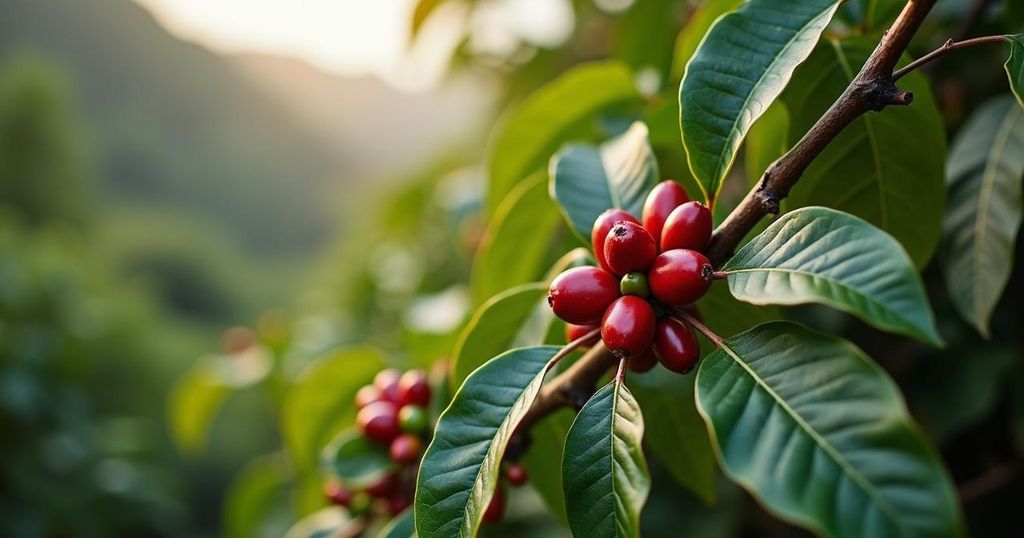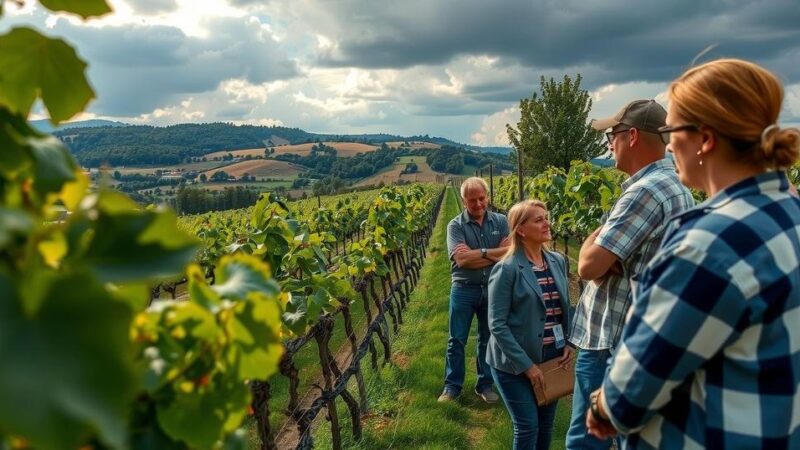Vietnam is facing a substantial drought affecting its robusta coffee crop, leading to potential reductions in production by up to 10%. As the world’s second-largest coffee producer, this shortfall is likely to drive prices higher amid already existing global coffee shortages, exacerbated by frost impacts on Brazilian arabica production. The situation raises critical concerns over the broader implications of climate change on agricultural outputs and food pricing.
The current drought conditions in Vietnam are adversely affecting the country’s robusta coffee bean production, which may significantly impact global coffee prices. As the second-largest coffee producer worldwide and the foremost cultivator of robusta beans, Vietnam’s challenges are particularly concerning this year, with predictions suggesting a potential shortfall of up to 10% in comparison to the industry’s established targets. This situation emerges after two consecutive years of declining yields, leading to a surge in robusta futures to levels not seen in nearly half a century. Additionally, Brazil’s production of arabica beans has been similarly compromised due to frost, exacerbating the global coffee supply crisis and causing prices to rise considerably. The ramifications of these climate events extend beyond individual consumers; they underscore a broader issue concerning climate change and its profound impact on global agricultural output. Such developments threaten to disrupt the supply of staple crops, contributing to inflationary pressures. A recent study projects that climate-related changes could inflate global prices by over one percentage point annually by the year 2035. It is noteworthy that central banks often overlook food pricing in their inflation measures, which may soon necessitate a reevaluation of this approach, although conventional monetary policies like interest rate hikes have limited efficacy against price increases stemming from reduced agricultural yields. On an individual level, consumers may face increased volatility in agricultural commodity prices over time due to climate change. However, this scenario may also present lucrative opportunities for investment in agricultural technology firms focused on enhancing productivity and fostering indoor cultivation practices.
Vietnam has emerged as a pivotal player in the coffee industry, primarily as the leading producer of robusta beans globally. This document addresses the implications of the current drought, the most severe in a decade, which compounds previous years of poor yield. Experts note that this drought spells potential trouble for both local farmers and the global coffee market, with its repercussions likely reverberating through food prices and inflation rates. Concurrently, the effects of climate change on agriculture, emphasizing the necessity for adaptation in farming practices and the exploration of innovative solutions in agricultural technology, are brought to the forefront.
In summary, the drought affecting Vietnam’s coffee crops could lead to significant price increases for coffee consumers globally, as robusta bean production faces troubling shortfalls. Coupled with Brazil’s frost-induced challenges in arabica crops, the situation highlights the overarching threat posed by climate change to global food security and inflation. With potential investments in agricultural technologies, stakeholders might find new avenues to address these pressing concerns.
Original Source: finimize.com






